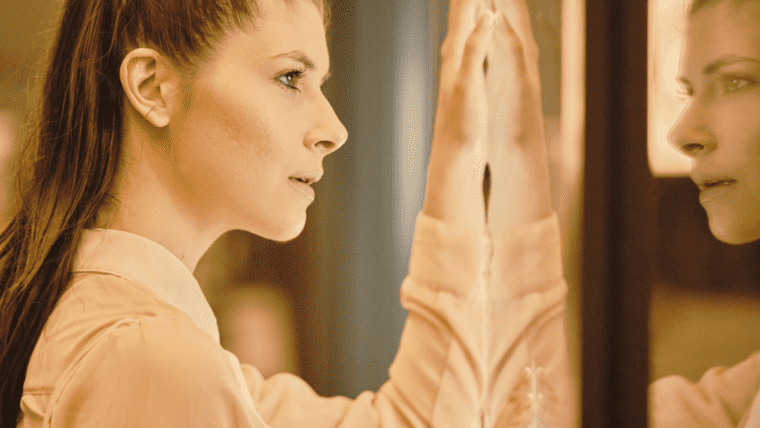In the modern world, it seems like we can’t escape judgement. We only need to turn our phones on and click through social media to see a barrage of validation and criticism. Entire websites focus on following and criticising celebrities and social media stars. Judging is addictive, and it’s tempting to get sucked in and perpetuate this cycle. However, one of the healthiest things you can do for yourself is to stop judging yourself and others, disconnect, and take some time to understand yourself.
Why Do We Judge?
Judgment is part of the human experience; we can’t help it! Every day, we evaluate and judge what we see. If we see an ad, we evaluate the product. When we meet people, we make split-second judgments, determining whether we will like and trust them.
No matter what we are judging, we make one of two primary judgments:
- Situational attribution is used to determine behaviour based on what is happening.
- Personality attribution is more personal. In this instance, we take behaviour and assume that it is simply a part of an individual’s character.
Let’s assume that you are playing soccer with a friend. Your friend kicks the ball a bit too high, hitting you in the face.
- Situational attribution will say that this was a mistake. After all, your friend wouldn’t try to hurt you. This is simply a part of the game; it’s time to shrug it off and go back to playing.
- Personality attribution, however, may assume that your friend is a rash and violent person and that the act was intentional.
You want to use situational judgment as often as possible for the most peace in your life. In addition to providing more insight into a situation, these types of judgments allow you to take a step back and realise that not everything is personal.
Once you realise this, you can recognise that not all judgment is terrible. We make plenty of judgments in our daily lives. When we see food, we have to judge whether or not it is edible or if we should avoid it. When we encounter a snake or an aggressive dog, we need to judge how we should react.
Judging things is a natural part of human behaviour; however, we need to understand and control our judgments to enjoy life’s gifts.
What Constant Judging Does to You – Another Reason Why You Need to Stop Judging Yourself!
One of the most prevalent results of constant judgment is excessive stress. Undue stress manifests itself physically—increased heart rate, blood pressure spikes, and premature signs of aging result from being too stressed. Stress often snowballs into anxiety, which commonly manifests itself as digestive issues.
Harshly judging yourself only amplifies the effects of this stress. When you doubt yourself and your abilities, you often fall into a self-fulfilling feedback loop of failure, disappointment, and anxiety.
How to Judge Mindfully
If you want to take a huge step in your growth journey, one of the best things you can do is try to stop being judgmental! Instead of doubting yourself, uplift yourself! For thirty days, try to judge things as they are, not as you feel they may be.
Rework Your Mindset
One of the biggest challenges you’ll overcome when limiting your judgment of yourself and others is your mindset. The modern world has programmed people to judge what they see without knowing the consequences.
If you want to minimise judgment in your life, then take a step back. Realise that you don’t need to understand or agree with everything you see. Instead, it is OK to accept the world around you.
Question the reasons Why You Judge
Even with a new understanding and approach, you’ll still judge yourself and others. That’s OK! These types of changes don’t happen overnight. When you do slip up, take a step back. The first thing you should do is ask yourself why you felt compelled to judge.
There are a few common reasons, likely a few reasons that you’ve decided to judge:
- Unrealistic expectations
- Past negative experience
- Envy
- Personal values
- Limited beliefs
- Preconceived ideas
- Unconscious bias
Regardless of why you judge, set a goal to accept the world around you and stop trying to force it to suit your preferences. Instead of trying to change other people, you can stop judging yourself and learn to be content with the experience of observing the world as it is!
And what about self-judgment? Could you decide to stop judging yourself and stop criticising your actions? Give them space and see what comes of it.
Embrace the Unknown
Another common reason for wanting to judge yourself or others is the fear of the unknown. This is a familiar human sensation, and it’s entirely natural to be afraid of what you don’t understand. However, the unknown can also be exciting and filled with possibilities.
Find Your Purpose
Manifesting self-love doesn’t always mean repeating affirmations; it may just be allowing yourself to see the world as it is. You do not exist to change the world around you to make you feel OK on the inside. Instead of forcing change, embrace what is happening.
As challenging as this is, this means engaging with people you may disagree with. Appreciate their perspective, and realise that you can’t change what you dislike about them. f you find yourself criticising others, consider taking a moment to consider the following:
- The world does not exist to make you, alone, happy
- You can’t change people
- The more you try to change people, the more resistant they are to change
- Everyone is entitled to their views
- Life is not perfect, but it is a sacred gift you can enjoy.
Practice Meditation
When you need to unwind and withdraw from the world, meditating is one of the best ways.
Most people get caught up with judging their meditation. They wonder if they are doing it right, sitting correctly or performing the correct mantra.
Meditation is an excellent place to practice letting go of judging because there is no right or wrong way to meditate. Sitting in silence will bring you powerful patience, tolerance and acceptance, allowing you to reduce the need to judge yourself and others naturally.



